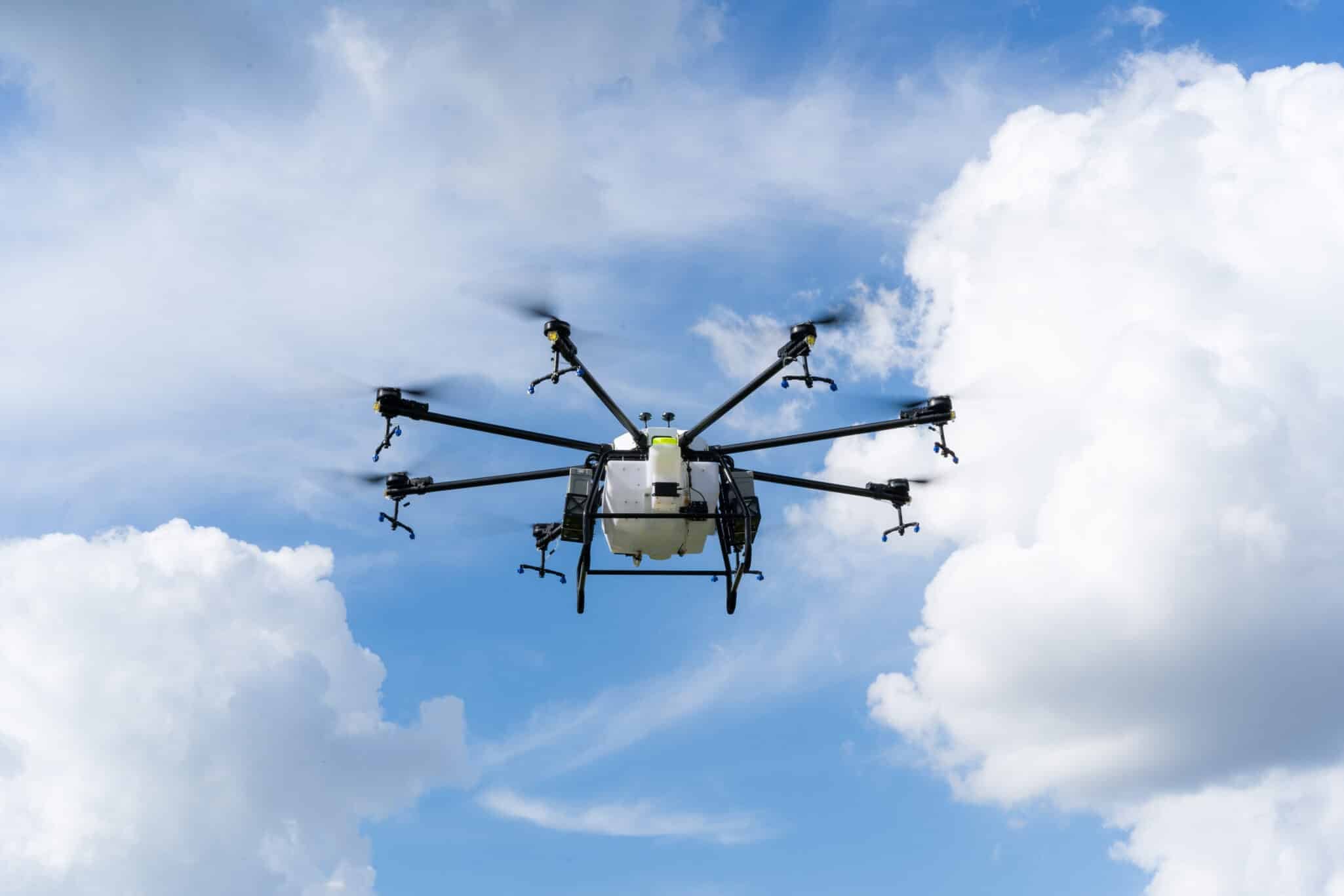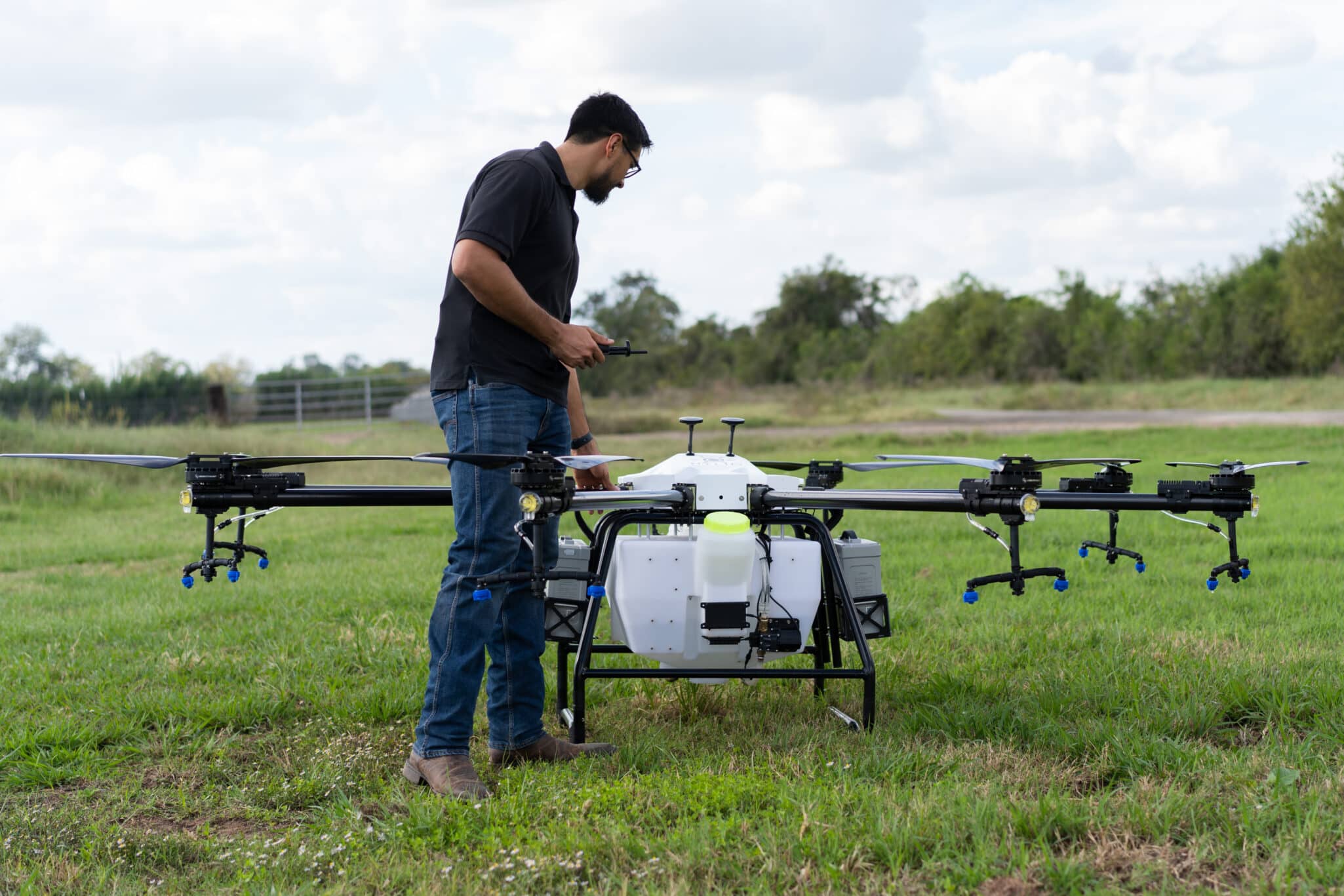Key Takeaways:
- Arthur Erickson co-founded Hylio in 2015 while studying aerospace engineering at the University of Texas at Austin.
- The company shifted from a multi-purpose drone model to specialized agricultural spray drones after early work in Central America.
- FAA regulatory changes since 2019 have opened the U.S. market for commercial spray drone operations.
- Hylio maintains a policy that gives farmers control over their operational data.
- Erickson envisions Hylio as a leading name in agricultural drones by 2030, with expansion into AI-driven crop analytics and other industries.
Arthur Erickson and the Founding of Hylio

Arthur Erickson, CEO and one of four original co-founders, described Hylio’s origins as “your classic dorm room story.” Established in January 2015 with fellow University of Texas at Austin students, the company initially aimed to produce multi-purpose modular drones for applications ranging from deliveries to aerial sensing.
“We were young and naive, which was a strength for us,” Erickson said. “We just gave it a shot.” Early prototypes led to a delivery pilot in Costa Rica, but the real market opportunity emerged in agriculture.
From Multi-Purpose Drones to Agriculture: Arthur Erickson on the Pivot
While working in Central America, the team saw firsthand the challenges faced by farmers in regions with smaller fields, hilly terrain, and limited mechanization. “A lot of the farmers were doing stuff by hand,” Erickson explained. “They leapfrogged from applying things the old-school way to going super high-tech with our drones.”
Hylio’s software interface, designed to be highly visual, allows users to draw field boundaries on a map, set spray parameters, and launch operations with minimal steps. Erickson said adoption relied on demonstration: “Farmers are ‘see it and believe it’ people. We’d spray 50 acres, and a week later they’d see the results.”
Regulatory Progress and U.S. Growth
Today, 98% of Hylio’s commercial activity is in the United States, with a strong presence in the Midwest and Southeast. Crops include corn, soybeans, wheat, rice, cotton, and specialty produce.
Erickson acknowledged the role of regulation in enabling growth: “The FAA has done a great job all things considered. Since 2019, we’ve had a clear path to legally operate spray drones through Part 107, Part 137, and Part 44807.” He noted incremental improvements, such as blanket airworthiness approvals, have sped up adoption.
Looking ahead, Erickson views fully autonomous operations as the next step: “The ultimate vision is drones that recharge, refill, and spray without human supervision. Technically we’re close, but the FAA has to be convinced.”
Arthur Erickson on Data Privacy and Industry Challenges
On data protection, Erickson said: “Our end-user license agreement states the data belongs to the customer. It doesn’t go to anybody else. That’s not our business model.”
He contrasted this with markets where legal structures allow government access to company data, advising users to be aware of the differences.
Erickson also cautioned against monopolistic pressures from low-cost competitors: “If one company dominates through price dumping rather than innovation, the industry risks stagnation. That’s not good for farmers or technology development.”
Arthur Erickson On Looking Toward 2030
By 2030, Erickson envisions Hylio as a household name in agricultural drones, with products on “nearly every large farm in the United States.” He anticipates expanded use of AI and machine learning for crop monitoring and optimization, as well as potential entry into adjacent sectors like defense and disaster response.
“We want Hylio to be synonymous with agricultural drones,” Erickson said. “We’ll keep focusing on agriculture, but we’ll explore other industries where our technology can add value.”


